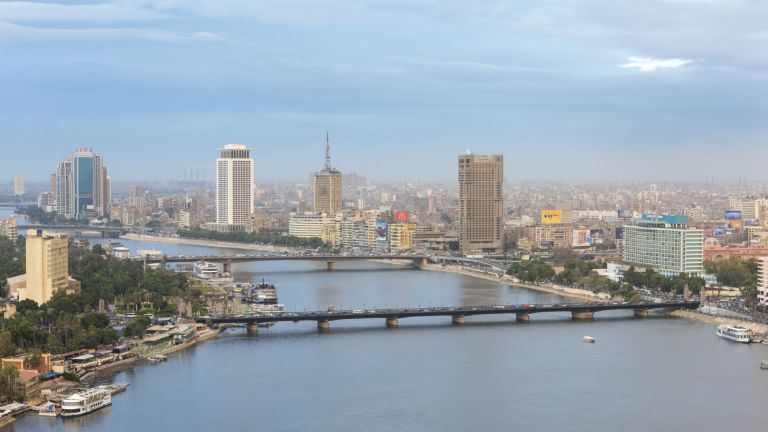A “smart city” is being built in the desert 45 km from the Nile River
In the new Egyptian capital on the outskirts of Cairo, residents will use “smart” magnetic cards and phone applications to unlock doors, make payments and surf the web via public wireless internet coming from street poles.
A network of at least 6,000 cameras will monitor what is happening on all streets, monitor pedestrians and vehicles to regulate traffic, and report suspicious activity.
The “smart city” project is light years away from some areas of Egypt’s current sprawling capital, where outdated infrastructure leads to uneven mobile and internet signal coverage, where porters from adjacent apartment buildings form a human network of scouts. and administrative tasks cost people hours of queuing.
The city, which is being built from scratch in the desert and is now called the New Administrative Capital, is expected to hold 6.5 million residents and is expected to open its doors to its first city officials later this year.
It is unclear to what extent the center of gravity in Egypt will move from Cairo to the new capital, which is located 45 kilometers from the Nile River. For many ordinary Egyptians, who for generations have considered the bustling city their home, the relocation itself, as well as its cost, would be unthinkable.
But those who decide to change are promised to be able to use a single app to pay their utility bills, access local services, and file complaints and problem reports.
Officials say advanced technology systems will help reduce losses by detecting leaks and other damage and allowing residents to monitor how much water and electricity they consume.
“Through its mobile application, the citizen will be able to manage all aspects of his life from his mobile phone,” said Mohamed Khalil, head of the technology unit at the military-owned and government-owned Administrative Capital for Urban Development, which is building the new capital. .
Technology contracts
Authorities plan to replicate and synchronize the technology with other development projects advocated by Egyptian President Abdel Fattah al-Sisi, for whom the new city is a flagship project.
“This model applies to all 14 new cities that are in the process of being created now. One of our goals is the integration of cities,” Khalil said.
According to some Egyptians, the new capital is for the privileged elite in a country where almost a third of the population lives below the poverty line. Others believe that technological advances should have happened long ago.
“All this is very useful for the citizen,” said Tark Habib, a 53-year-old merchant who commented on all of this in central Cairo amid the emptying of Mugama, the monolithic and chaotic center of the Egyptian bureaucracy in recent decades.
The technology and communications contracts for the new capital total $ 640 million, but that amount could reach $ 900 million at a later stage, Khalil said. Among the partners are companies such as Huawei, Orange and MasterCard.
A surveillance system developed by Honeywell will “monitor crowds and traffic jams, detect thefts, monitor suspicious people or objects, and trigger automatic emergency alarms,” the company said.
And while construction work continues, it remains to be seen what the level of control is and whether there is cause for concern.
Officials say the surveillance technology will be aimed at detecting crime and improving security, and that the information gathered will be protected by Egyptian law and international standards.
However, Egypt was the scene of widespread repression by dissidents under the Sisi regime. Repressive measures included control of internet activity, on-the-spot checks on the streets, a practical ban on protests and the constant renewal of the state of emergency.
Increased surveillance could make it easier to identify dissidents, but “I don’t see what that would change beyond what they are already doing, and which are very extensive,” said Stephen Feldstein, a senior fellow at the Foundation. Carnegie for International Peace in Washington and author of a book on digital repression.
Translated by Vladimir Arangelov, BTA
–


